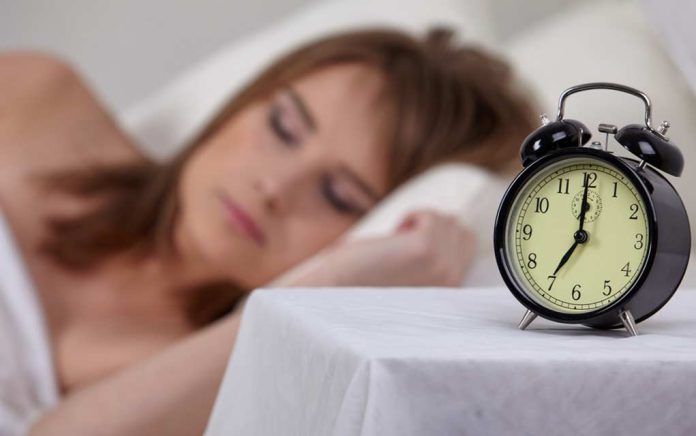
(HealthyResearch.com) – How much rest do you get every night? If you get less than six hours, you could have something called short sleep syndrome. This shouldn’t be confused with other disorders like insomnia or sleep deprivation. Short sleepers generally don’t feel tired during the day, even though they’re sleeping very little. Let’s discuss this rare syndrome further.
What Is Short Sleep Syndrome?
Short sleep syndrome is a condition where people sleep very little yet still function normally during the day. Short sleepers typically only sleep 4-6 hours each night, but they wake feeling well-rested and alert.
A lot of us don’t get enough sleep. Some people are forced to sleep less than they want or need, for one reason or another. This is not the same thing as short sleep syndrome. This is just sleep deprivation, otherwise known as insufficient sleep syndrome.
True short sleepers are quite rare. This syndrome only affects 1% of the population. It is believed to be a genetic disorder.
Around 30% of Americans report regularly sleeping less than six hours. However, most of them are not short sleepers, clinically speaking. The difference is in how people feel when they’re awake. For most people, getting less than 7-9 hours of sleep a night will leave them feeling lousy the next day. But for short sleepers, there are no negative symptoms.
The number of hours of rest we get every night is not the only important factor; the quality of sleep also matters. People who don’t spend enough time in deep sleep tend to feel like they’re not well-rested, even after they sleep for eight hours.
Doctors say short sleep syndrome is very different from insomnia. People with insomnia generally suffer from higher levels of anxiety, and they typically report dissatisfaction with their short sleep and feelings of non-restoration and fatigue.
The Symptoms
The main symptom of short sleep syndrome is feeling fully functional after consistently sleeping for less than six hours every night. There are no other real symptoms. However, researchers have found some common traits among short sleepers.
Short sleepers are often characterized by impulsivity, hypomania, and high reward drive. Many of them engage in stimulating activities during the day, which helps them to override the feeling of sleepiness.
Researchers have also found that some short sleepers have increased connectivity between the hippocampus (responsible for memory) and the cortexes (responsible for processing sensory information). Some scientists believe that short sleepers can do memory consolidation while they’re awake. Non-short sleepers can’t do that. Normally it’s done during sleep. Further study is needed to test this theory.
The Treatment
Because short sleepers function well during the daytime and aren’t impaired by the lack of sleep, treatment is not required, according to the National Sleep Foundation. The syndrome is considered a sleep disorder, but doctors say it isn’t treatable.
Are There Long-Term Health Effects?
One question that remains unanswered is whether there are any long-term health consequences for short sleepers. Most people need the recommended 7-9 hours of sleep every night. Without it, we are likely to suffer adverse health effects like obesity, anxiety, type 2 diabetes, and high blood pressure. But so far, there isn’t a lot of research on how it could affect short sleepers.
Some doctors worry there could be repercussions for consistently short sleeping, even if they’re not perceived yet. More studies are needed to determine if short sleepers can avoid conditions like mood disturbance, cardiovascular disease, weight gain, inflammation, and cognitive deficits. All of these can occur for people who regularly don’t get enough sleep.
We’re all different, and we have different sleeping patterns. For some people, the sweet spot is about nine hours of sleep every night. Anything short of that may leave people feeling tired and sluggish the next day. But for other people, five hours of sleep is all they need to feel alert and well-rested.
A consistent lack of rest for most people may cause all sorts of negative health conditions. But true short sleepers remain healthy despite the short sleep. Scientists aren’t entirely sure why. There’s still so much we don’t know about sleep. Further research is needed to look into this great mystery.
~Here’s to Your Health & Safety!
Copyright 2021, HealthyResearch.com
















